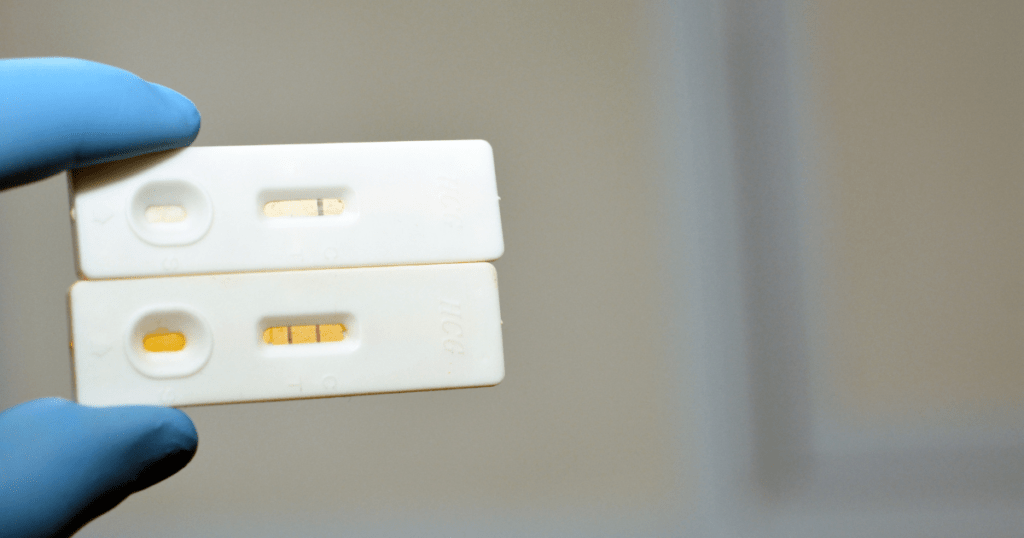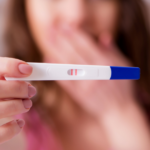Wondering if you can take a pregnancy test at night? Let’s unravel this mystery. We’re here to explore whether it’s true or just a tale.
One common question that often arises is whether it’s accurate or advisable to take a pregnancy test at night. In this exploration, we delve into the truth behind this query. Shedding light on the misconceptions and realities, we aim to clarify the efficacy of nighttime pregnancy testing. Understanding the factors and debunking myths, we uncover whether nighttime pregnancy tests are reliable or merely a product of hearsay.
We’ll simplify things to help you understand. By the end, we’ll have the answer: Does taking a pregnancy test at night work, or is it just a myth? Let’s find out together!
Importance of pregnancy tests
Pregnancy tests play a crucial role in women’s health by detecting early signs of pregnancy. They provide a quick and reliable way to confirm or rule out pregnancy, enabling individuals to take appropriate steps based on the results. Timely detection allows for early prenatal care, essential for ensuring the health and well-being of both the mother and the developing fetus.
Additionally, pregnancy tests empower individuals to make informed decisions regarding family planning, career choices, and lifestyle adjustments. By offering clarity and certainty during uncertain times, pregnancy tests serve as valuable tools in reproductive health management. Overall, the importance of pregnancy tests lies in their ability to provide timely information and support to individuals navigating the journey of pregnancy and parenthood.
Read to know More:Cracking the Code: How to Read Clear Blue Pregnancy Tests Effectively?
How Pregnancy Tests Work?

Pregnancy tests work by detecting a hormone called human chorionic gonadotropin (hCG). The placenta produces this hormone shortly after a fertilized egg implants itself in the uterus. There are two main types of pregnancy tests: urine tests and blood tests.
Urine tests are the most common and can be done at home. They involve placing a test strip or stick in a urine sample or urinating directly onto the test device. The test contains chemicals that react to hCG if they aren’t causing a visible change like a line or colour.
Blood tests are typically done at a healthcare provider’s office. They measure the level of hCG in the blood, which can detect pregnancy earlier than urine tests, sometimes as soon as 6-8 days after ovulation.
Both tests detect the presence of hCG, signalling that a fertilized egg has been implanted in the uterus. This indicates pregnancy, providing valuable information for individuals trying to conceive or manage their reproductive health.
Types of pregnancy tests

There are two main types of pregnancy tests: urine tests and blood tests.
- Urine Tests: These are the most common type of pregnancy test and can be easily performed at home. They involve either holding a test strip in the urine stream or collecting urine in a cup and dipping the test strip into it. The test strip contains chemicals that react to the presence of human chorionic gonadotropin (hCG), a hormone produced by the placenta during pregnancy. Depending on the brand, the result may be indicated by a change in colour, the appearance of lines, or a digital display.
- Blood Tests: Blood tests for pregnancy are typically performed in a healthcare setting, such as a doctor’s office or clinic. There are two types of blood tests: qualitative and quantitative. Qualitative blood tests measure the presence of hCG and provide a “yes” or “no” answer regarding pregnancy. Quantitative blood tests measure the exact amount of hCG in the blood, which can help determine the stage of pregnancy and monitor hCG levels over time. These tests are more sensitive than urine tests and can detect pregnancy earlier, usually around 6-8 days after ovulation.
Factors Affecting Test Accuracy
Several factors can influence the accuracy of pregnancy tests:
- Time of Day: When a pregnancy test is taken, its accuracy can be affected. Morning urine is often recommended for testing as it is more concentrated with hCG, making it easier to detect early signs of pregnancy. However, some tests claim to be accurate at any time of day.
- Urine Concentration: The concentration of hCG in urine can vary depending on factors such as hydration levels and how recently fluids were consumed. More concentrated urine, such as that from the first-morning void, may yield more reliable results than diluted urine from later in the day.
- Timing of Implantation: Implantation, the process by which the fertilized egg attaches to the uterine lining, can vary from woman to woman. If implantation occurs later than expected, it may take longer for hCG levels to rise to detectable levels, potentially leading to false-negative results if the test is taken too early.
Can You Take a Pregnancy Test at Night?

Many wonder if it’s suitable to take a pregnancy test after the sun sets. The answer is yes, you can take a pregnancy test at night. However, the timing may affect the accuracy of the results. While some argue that morning urine is best for testing due to its higher concentration of pregnancy hormones, others believe that testing at night can yield equally reliable results.
Factors such as urine concentration and timing of implantation play a role in the accuracy of the test. Although nighttime testing offers convenience and privacy, it may also increase the chance of false positives due to urine dilution from daytime fluid intake.
Can you take a first-response pregnancy test at night?
Yes, you can take a First Response pregnancy test at night. While it’s generally recommended to use the first urine of the day for testing due to its higher concentration of the pregnancy hormone hCG, these tests can still provide accurate results at night. However, carefully following the instructions supplied with the test kit is essential to ensure the most accurate results possible.
Additionally, consider precautions such as limiting fluid intake before testing to prevent urine dilution, which can affect the accuracy of the results. While taking a First Response pregnancy test at night is feasible, it’s crucial to consider factors like urine concentration and timing to obtain the most reliable results.
How accurate are pregnancy tests at night?
Pregnancy tests taken at night can be accurate if precautions are followed. While morning urine is often recommended for testing due to its higher concentration of hCG, nighttime testing can still yield reliable results. However, it’s essential to consider factors like urine concentration and timing. Limiting fluid intake before testing and following test instructions carefully can help ensure accuracy. Ultimately, the accuracy of a pregnancy test at night depends on individual circumstances and adherence to testing guidelines.
Pros of Taking a Pregnancy Test at Night
Convenience:
Taking a pregnancy test at night offers the convenience of privacy and comfort. Many individuals prefer to take sensitive tests like these in the privacy of their own homes, away from the hustle and bustle of daily life. Nighttime can provide a calm and secluded environment conducive to taking the test without distractions. Additionally, individuals who work during the day or have busy schedules may find it easier to allocate time for testing in the evening. This convenience factor can reduce the stress and anxiety associated with waiting to take the test.
Reduced Chance of False Negatives:
Another potential advantage of taking a pregnancy test at night is the reduced chance of false negatives. Some women’s urine may be more concentrated in the morning due to holding it overnight. However, this is only the case for some. Sometimes, hCG levels may be more detectable in urine samples taken later in the day, leading to more accurate results. Therefore, taking the test at night may increase the likelihood of detecting pregnancy hormones, thus reducing the risk of receiving a false negative result.
Cons of Taking a Pregnancy Test at Night
Increased Chance of False Positives:
One drawback of taking a pregnancy test at night is the increased chance of false positives. If a person has consumed liquids throughout the day, their urine may be more diluted in the evening, potentially affecting the concentration of hCG. This dilution could lead to false-positive results, where the test indicates pregnancy when it is not the case. False positives can cause unnecessary stress and confusion, highlighting the importance.
Tips for Accurate Results
Best Time to Take a Pregnancy Test:
For optimal accuracy, it’s generally recommended to take a pregnancy test with the first urine of the day, usually upon waking in the morning. Morning urine tends to be more concentrated and contains higher levels of the pregnancy hormone hCG, which increases the likelihood of obtaining accurate results. If testing in the morning isn’t feasible, waiting at least four hours after your last urination to take the test can also help ensure more concentrated urine.
Precautions for Night Testing:
If you take a pregnancy test at night, there are a few precautions to consider:
- Try to limit your fluid intake in the hours leading up to the test to prevent urine dilution.
- Avoid diuretic substances like caffeine, as they can increase urine production and dilute the sample.
- Follow the instructions provided with the test kit carefully to ensure accurate results.
If possible, use a pregnancy test designed for nighttime use, as these may be formulated to account for potential variations in urine concentration during nighttime testing.
Urine Dilution:
Another factor to consider when taking a pregnancy test at night is urine dilution. Overnight urine may become more diluted due to increased fluid intake or the passage of time. Diluted urine can impact the accuracy of the test by reducing the concentration of hCG, making it more challenging to detect early signs of pregnancy. Consequently, individuals may receive inaccurate results, leading to uncertainty and the need for retesting. To mitigate this risk, it’s essential to follow the test instructions carefully and consider factors like hydration levels when choosing the optimal time for testing.
FAQ
What is the best time to take a pregnancy test?
The best time to take a pregnancy test is typically with the first urine of the day, as it is more concentrated with the pregnancy hormone hCG.
Can I get accurate results if I take a pregnancy test at night?
Yes, you can still get accurate results with a pregnancy test at night, but following instructions and considering precautions for optimal accuracy is essential.
Do all pregnancy tests work the same way?
No, there are different types of pregnancy tests, such as urine tests and blood tests, each with its mechanism for detecting pregnancy hormones.
How soon can I take a pregnancy test after conception?
Most pregnancy tests can detect pregnancy hormones in urine about one to two weeks after conception, depending on the sensitivity of the test.
What should I do if my pregnancy test results are unclear or confusing?
If you’re unsure about the results of your pregnancy test, it’s recommended to consult a healthcare professional for further guidance and clarification.
Conclusion
In conclusion, whether you take a pregnancy test in the morning or at night, the key is to follow the instructions carefully and consider factors like urine concentration and timing. While morning urine may be more concentrated and preferred, nighttime testing can still provide accurate results if precautions are taken. Ultimately, deciding to test at night depends on individual circumstances and preferences. Regardless of the time, obtaining accurate results is essential for informed decision-making regarding pregnancy.
Read to konw Also:Cracking the Code: How to Read Clear Blue Pregnancy Tests Effectively?
















